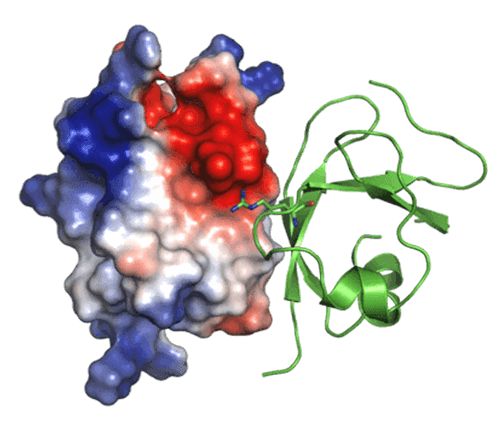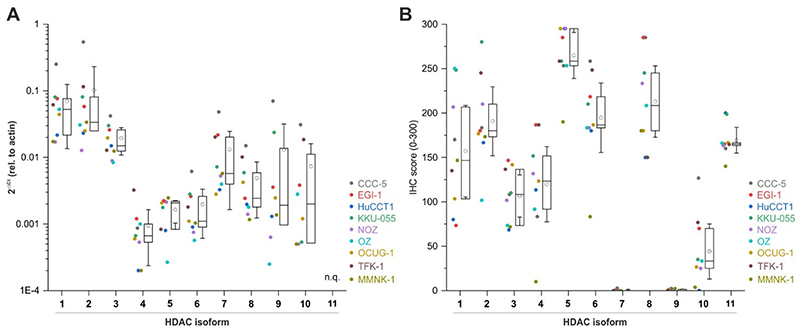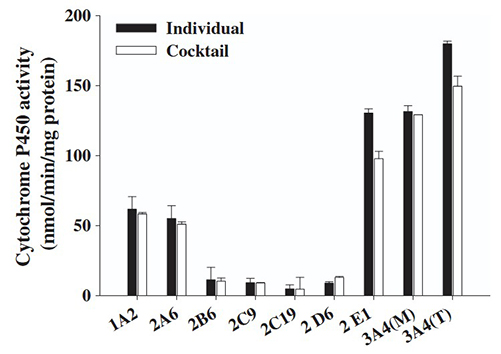Enzyme Target and Screening
Enzymes play critical roles in life processes and disease pathophysiology, making them highly attractive targets for drug discovery and therapeutic intervention. At Creative BioMart, we offer comprehensive enzyme assay and screening services, covering a wide array of enzyme families, including kinases, proteases, CYP450s, hydrolases, oxidoreductases, deacetylases, and phosphodiesterases. Our platform supports assay development, high-throughput screening, and inhibitor profiling, enabling the discovery and characterization of compounds with potential therapeutic value. By combining advanced assay technologies, disease-relevant targets, and scalable screening capabilities, Creative BioMart accelerates drug development and supports research into novel treatments for cancer, metabolic disorders, and other diseases.

Enzyme Assays and Screening: Background and Importance
Enzymes are central to cellular function, regulating metabolism, signal transduction, and epigenetic modifications. Their misregulation often underlies disease processes such as cancer, neurodegeneration, and metabolic disorders. Consequently, enzyme-targeted drug discovery has become a key focus in pharmaceutical research.
The increasing demand for novel enzyme assays reflects the need to understand drug metabolism, pharmacokinetics, and potential toxicity reactions. High-quality enzyme assays and screening platforms enable researchers to identify potent and selective inhibitors, evaluate enzyme activity, and accelerate the discovery of therapeutics with high efficacy and low off-target effects.
At Creative BioMart, we combine in-depth enzymology expertise with high-throughput technologies to deliver reliable, physiologically relevant data, empowering clients to make informed drug discovery decisions.

Comprehensive Enzyme Assay and Screening Solutions
Our Services
Creative BioMart provides a full spectrum of enzyme assay and screening services:
-

Assay Reagent Preparation
High-quality enzymes, cofactors, and substrates for robust assay performance
-

Custom Assay Development
Tailored assays for high-throughput screening and mechanistic studies
-

High-Throughput Screening & Profiling
Screening of compound libraries for enzyme inhibition or activation
-

Enzyme Inhibitor Testing
Evaluation of inhibitors against total enzymatic activity or individual isoforms
Covered Enzyme Families
Creative BioMart supports a broad array of enzyme families and specific targets:
|
Enzyme Families |
Specific Targets |
|---|---|
|
Cytochrome P450 |
|
|
Oxidoreductases |
|
|
Transferases |
|
|
Deacetylases |
|
|
Hydrolases |
|
|
Lyases |
|
|
Phosphatases |
|
|
Phosphodiesterases |
PDE1–PDE11 isoforms (PDE1A, PDE1B, PDE1C, PDE2A, PDE3A, PDE3B, PDE4A, PDE4B, PDE4C, PDE4D, PDE5A, PDE6C, PDE7A, PDE7B, PDE8A, PDE9A2, PDE10A1, PDE11A) |
|
Epigenetic Enzymes |
DNMTs (DNMT1, DNMT3A, DNMT3B), HNMT, HDMs (KDM1A, KDM3A, KDM3B, KDM5B), HDACs (HDAC1, HDAC2, HDAC3, HDAC4, HDAC5, HDAC6, HDAC7, HDAC8), HAT1 |
These enzymes are biologically and therapeutically relevant, with misregulation linked to cancer, neurodegeneration, and metabolic diseases. Our platform allows identification of potent inhibitors, including isoform-selective compounds critical for precision therapies.
Service Workflow

Why Choose Our Expertise in Enzyme Screening
- Comprehensive Enzyme Coverage: Broad panels covering key therapeutic targets.
- Custom Assay Expertise: Tailored assay development for high sensitivity and physiological relevance.
- High-Throughput Screening Capability: Efficient evaluation of large compound libraries.
- Isoform-Selective Profiling: Ability to test inhibitors against specific enzyme isoforms for precision targeting.
- Advanced Data Analysis: Detailed reporting including IC50, dose-response, and mechanistic insights.
- Translational Relevance: Focus on enzymes implicated in disease for accelerated drug discovery.
Case Studies in Enzyme Assay and Screening
Case 1: HDAC inhibition as a promising therapeutic strategy for biliary tract cancer
Mayr et al., 2021. doi:10.3390/cancers13153862
Biliary tract cancer (BTC) is a rare malignancy with limited treatment options and poor prognosis. Recent studies revealed heterogeneous expression of histone deacetylases (HDACs) in BTC cell lines and patient specimens, with HDAC1/2 expression correlating with higher tumor grade and reduced survival, particularly for HDAC-2. Pharmacological screening of six HDAC inhibitors demonstrated that BTC cells are highly sensitive to romidepsin, a class I HDAC inhibitor, which induced apoptosis, reduced HDAC activity, and enhanced histone acetylation. Moreover, romidepsin synergized with cisplatin, amplifying cytotoxic effects. These findings highlight romidepsin as a promising candidate for BTC therapy and underscore HDAC2 as a potential prognostic marker.

Figure 1. Expression analysis of HDACs in BTC cell lines. (A) mRNA levels of HDACs 1–11 in n = 8 BTC cell lines and non-tumor cholangiocytes MMNK-1. (B) Protein expression of HDACs 1–11 in BTC and non-tumor cholangiocytes MMNK-1 cell blocks by immunohistochemistry (IHC). (Mayr et al., 2021)
Case 2: Direct and metabolism-dependent cytochrome P450 inhibition assays for evaluating drug–drug interactions
Lee and Kim, 2013. doi:10.1002/jat.1720
Researchers developed reliable methods to evaluate the inhibition potential of major human cytochrome P450 (CYP) enzymes—including CYP1A2, CYP2A6, CYP2B6, CYP2C9, CYP2C19, CYP2D6, CYP2E1, and CYP3A4—using pooled human liver microsomes. Substrate cocktail sets combined with LC–MS/MS enabled simultaneous assessment of multiple isoforms. Both direct inhibition assays (without NADPH pre-incubation) and metabolism-dependent inhibition (MDI) assays (with NADPH pre-incubation) were performed, with MDI confirmed by IC50 shifts. Results aligned with reported inhibitor data, and eight known metabolism-dependent inhibitors showed significant IC50 shifts (≥2.5-fold). These assays provide valuable tools for detecting direct and metabolism-dependent inhibition early in drug discovery and development.

Figure 2. Comparison of each CYP isoform activity obtained between the substrate cocktail incubation (white bar) and individual substrate incubation (black bar). (Lee and Kim, 2013)
Customer Testimonials for Enzyme Assay and Screening Services
"Creative BioMart’s enzyme screening team provided exceptional expertise in our oncology program. We needed isoform-selective inhibitors for HDACs, and their comprehensive panel gave us rapid, reproducible data. Not only did they identify compounds with strong potency, but their profiling also flagged off-target risks early, saving us significant downstream costs. Their clear reporting and responsiveness made collaboration seamless."
— Director of Oncology Research | Mid-Sized Biopharmaceutical Company
"Our group engaged Creative BioMart for CYP450 enzyme assays to assess potential drug-drug interactions in our metabolic disease pipeline. Their assay development was tailored to our needs, and the results aligned perfectly with our in-house validation studies. The ability to profile across multiple CYP450 isoforms in a high-throughput format accelerated our IND submission. Their team showed both technical depth and regulatory awareness."
— Head of DMPK | Global Pharmaceutical Company
"We partnered with Creative BioMart to screen a proprietary compound library against sirtuin enzymes (SIRT1-3) for neurodegeneration research. Their high-throughput workflow identified several promising hits, which were further characterized with detailed kinetic data. The combination of assay robustness and bioinformatics support gave us actionable insights to prioritize lead candidates. This collaboration significantly shortened our discovery timeline."
— Senior Scientist, Neurobiology | Academic Research Institute
"Creative BioMart’s phosphodiesterase (PDE) profiling service was integral to our cardiovascular program. Their ability to handle over 20 PDE isoforms in parallel allowed us to rapidly evaluate selectivity and safety margins of our compounds. The turnaround time was impressive, and their expert guidance on assay conditions ensured high data quality. We now consider them a trusted partner for enzyme target validation."
— VP of Research & Development | Specialty Biotech Company
FAQs About Enzyme Assay Services
-
Q: What types of enzymes can you screen and profile?
A: We provide broad coverage of enzyme families, including kinases, proteases, CYP450 isoforms, oxidoreductases, transferases, deacetylases (sirtuins), lipases, phosphatases, phosphodiesterases, and key epigenetic enzymes such as DNMTs, HDACs, HMTs, HDMTs, and HATs. This comprehensive platform enables tailored solutions across diverse therapeutic areas. -
Q: Can you support high-throughput screening (HTS) campaigns for large libraries?
A: Yes. Our advanced platforms accommodate both client-supplied and in-house compound libraries, with the capacity to screen hundreds of thousands of compounds efficiently. We offer HTS and profiling with assay robustness and reproducibility, ensuring reliable data for decision-making. -
Q: Do you provide assay customization for unique research needs?
A: Absolutely. We specialize in developing customized enzyme assays, from reagent preparation to assay optimization, to address specific project requirements. Our team can adapt assays to meet regulatory standards or focus on niche enzymes of interest. -
Q: How do your services help in drug discovery for complex diseases such as cancer?
A: We offer panels for epigenetic enzymes like HDACs and DNMTs, which are critical in oncology. Our services support isoform-selective inhibitor discovery and profiling, helping clients identify novel drug candidates while minimizing off-target effects. -
Q: What advantages do your enzyme assays offer compared to traditional in-house testing?
A: Our assays provide high sensitivity, scalability, and reproducibility. We combine technical expertise with bioinformatics analysis, enabling faster identification of hits, selectivity profiling, and toxicity risk assessment—all with reduced turnaround time. -
Q: Can you provide both enzyme assay services and recombinant enzyme products?
A: Yes. In addition to screening and profiling services, we offer recombinant enzyme products named after their gene abbreviations. This ensures seamless integration between research reagents and analytical services, giving clients both flexibility and consistency.
Resources
Related Services
- Protein Kinase Assay
- Protease Assay Service
- Drug Discovery Screening
- High-Throughput Screening
- Enzyme Activity Assay
- Protein Analytical Service
- Integrated Drug Development & Manufacturing Bioprocess Development
Related Products
References:
- Lee KS, Kim SK. Direct and metabolism‐dependent cytochrome P450 inhibition assays for evaluating drug–drug interactions. J of Applied Toxicology . 2013;33(2):100-108. doi:10.1002/jat.1720
- Mayr C, Kiesslich T, Erber S, et al . HDAC screening identifies the HDAC class I inhibitor romidepsin as a promising epigenetic drug for biliary tract cancer. Cancers . 2021;13(15):3862. doi:10.3390/cancers13153862
Contact us or send an email at for project quotations and more detailed information.
Quick Links
-

Papers’ PMID to Obtain Coupon
Submit Now -

Refer Friends & New Lab Start-up Promotions

